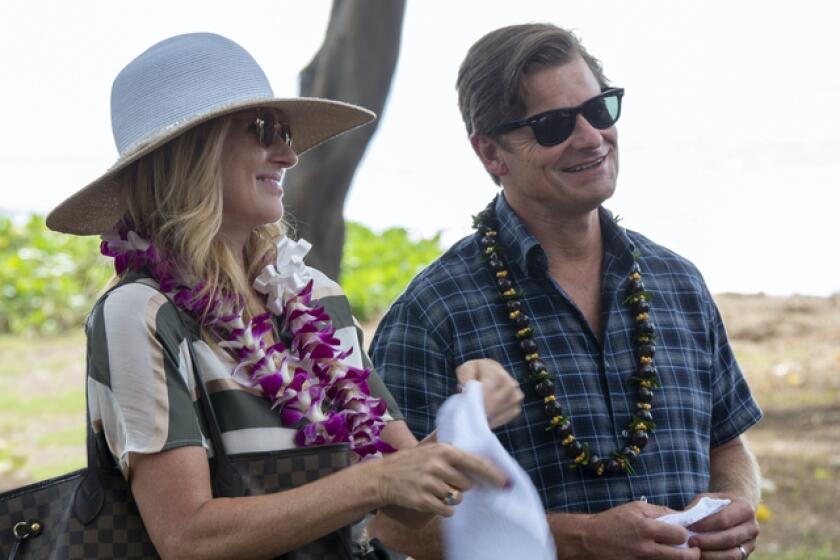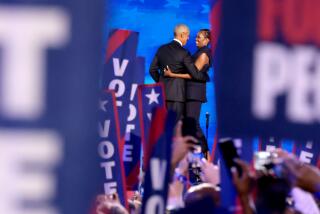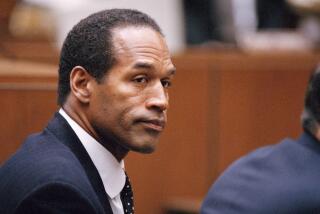HBOâs new documentary goes places the Obama media machine might not have
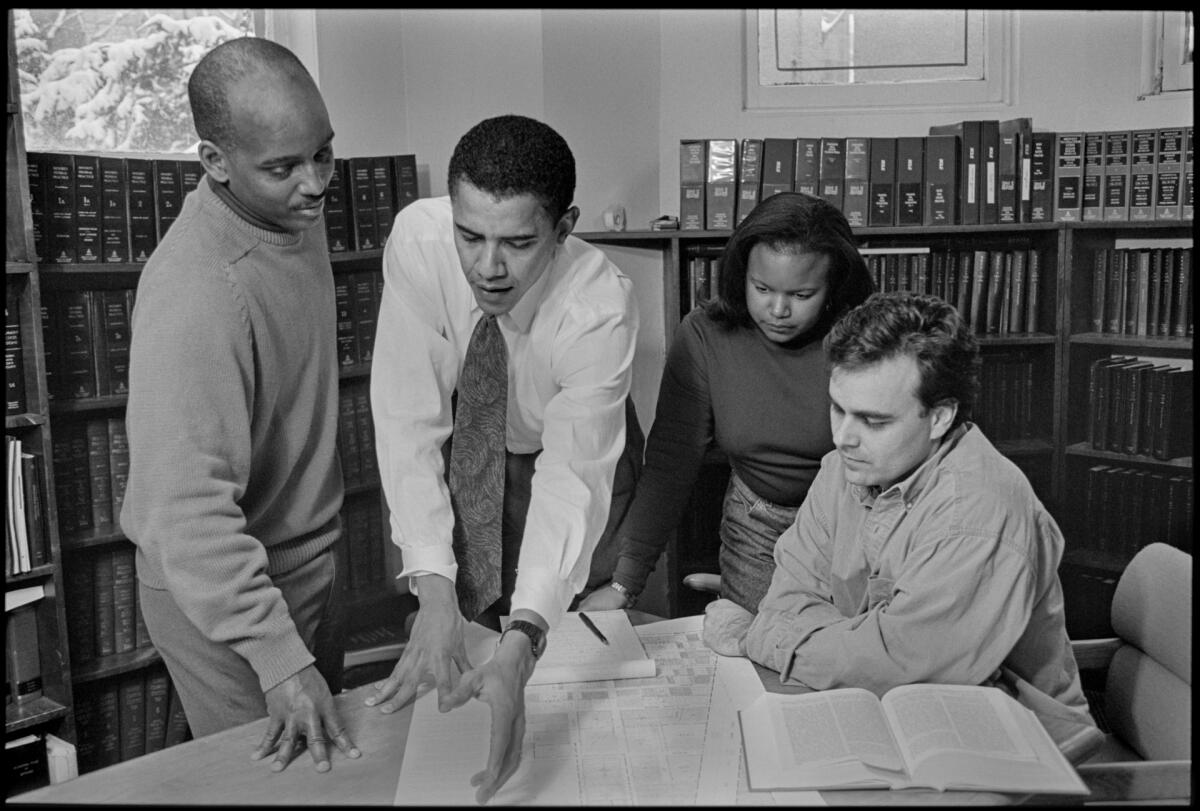
Thereâs no shortage of films and TV series covering Barack and Michelle Obamaâs lives and legacy, from Netflixâs âBecoming,â â a documentary portrait of the former first lady released by the pairâs own production company, Higher Ground â to the scripted romance âSouthside With Youâ and the âFrontlineâ political biography of the 44th president, âDreams of Obama.â So when HBO announced its three-part series âObama: In Pursuit of a More Perfect Union,â it was hard to imagine what new material or insights, if any, it had to offer.
And at the outset, the first installment, which premieres Tuesday, is deceptive. It feels like another ode to a beloved president and a favored subject among filmmakers. He is, after all, an irresistible subject: a Black man with a Muslim name who won election to the White House, twice, in a nation that has yet to deal with its racist past â and present. Heâs a font of eloquent speeches and quick-witted jokes, and his life is filled with the sort of dramatic obstacles that seem made for the screen. Plus, thereâs ample footage of his ascent, from his work as a community organizer in Chicago to his run for the state and then the U.S. Senate.
And âA More Perfect Unionâ capitalizes on all the above. But it ultimately sets itself apart by taking a deeper look at the multitude of issues that surfaced after America finally chose its first Black president.
Across each of the roughly 90-minute episodes, âIn Pursuit of a More Perfect Union,â from documentary filmmaker Peter W. Kunhardt (âLiving with Lincoln,â âNixon by Nixon: In His Own Words,â and âJohn McCain: For Whom the Bell Tollsâ), delves into complicated questions related to Blackness and inclusivity in interviews with the late Rep. John Lewis, Rev. Jeremiah Wright, journalist Michele Norris, Rev. Al Sharpton, professor Cornel West, author Ta-Nehisi Coates, NAACPâs Sherrilyn Ifill, political adviser Valerie Jarrett, professor Henry Louis Gates Jr., politician Jesse Jackson, author Michael Eric Dyson and seriesâ co-producer Jelani Cobb, among others.
Netflixâs new documentary, âBecoming,â a companion to Michelle Obamaâs memoir of the same name, is unlikely to change oneâs view of its subject.
And although the Obamas arenât interviewed for the series â the only family member to appear is the former presidentâs Kenyan aunt â itâs unlikely the documentary would have gone to the places it does if the 44 machine had been steering the narrative.
The first part, which follows Obama from childhood to his decision to run for president, kicks off with his famous âraceâ speech in March 2008, in which he addressed the media controversy surrounding Wright, his church pastor, during the Democratic primary campaign. Obama used the make-or-break opportunity to address the issues of race in America raised by his candidacy and to promote the idea of American unity and hope.
But alongside the usual biographical storytelling, with archival photos and footage from previously aired interviews with Barack and Michelle, the production veers into more compelling territory when it hands the discussion over to those in the Black community who were working in the political trenches during Obamaâs rise.
For instance, Sharpton recalls a conversation he had with then-Illinois state Sen. Obama in 2004 at the Caucus of Black Delegates, the day before Obama was to give his breakthrough keynote speech at the Democratic National Convention.
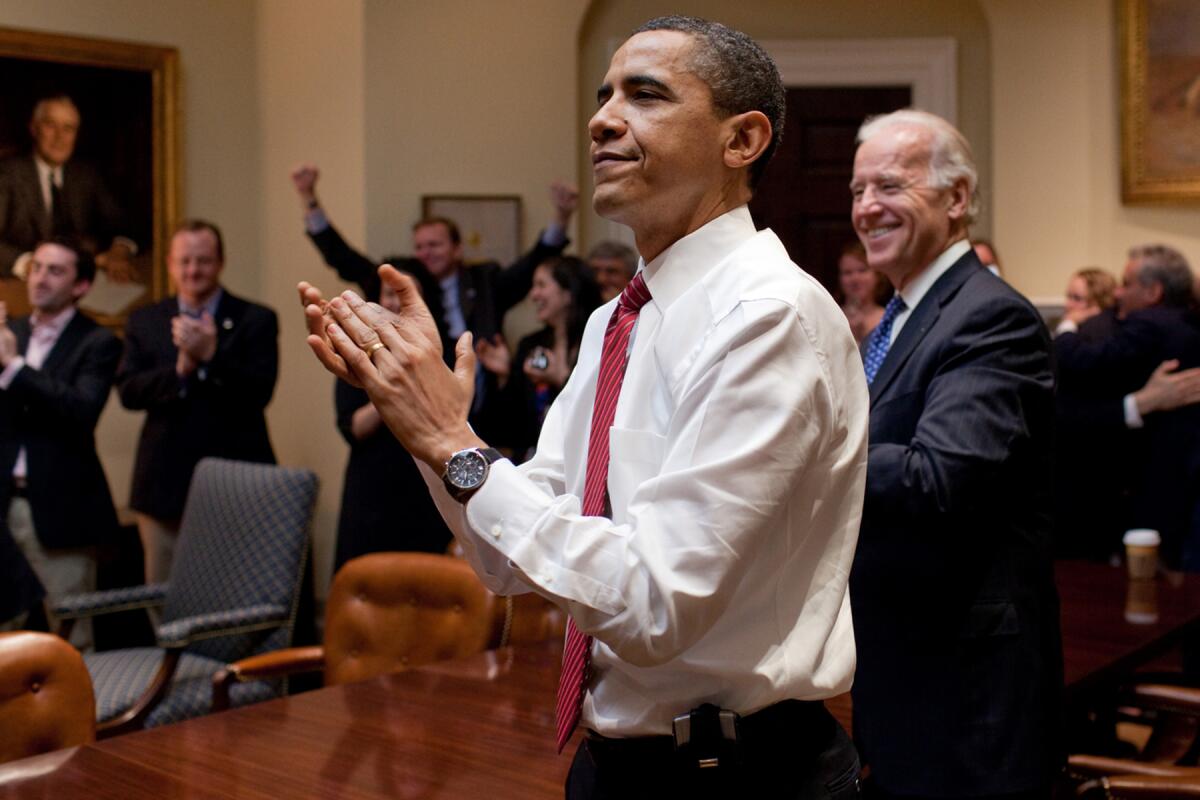
The mixed-race Obama was already walking a tightrope between serving the Black community and appealing to whites, Sharpton says: âHe said, âI just want to explain to you, reverend that Iâm doing the keynote tomorrow night and Iâm probably going to be more expansive and unifying than a lot of people are used to.â I stopped him and said, âDonât worry, senator. You do what you have to do tomorrow night because you have to win for U.S. Senate. Iâm gonna take care of the brothers and sisters tonight.â I think that kind of began a relationship where he and I understood that we played different roles.â
Using Obamaâs legacy as a prism to look at the myriad ways his presidency forced the country to grapple with its painful history, the series thus offers a fresh look at how Obama did and didnât fit into the countryâs prevailing political narratives.
The second part, which covers his presidential run, reveals that Obama felt constant pressure âto define his identity along racial lines,â which left him âfrustrated by what he saw as a distraction from other important issues.â
Wright recalls the media blitz that saw 30 yearsâ worth of clips from his impassioned sermons at Chicagoâs Trinity United Church edited down to two minutes of remarks criticizing American foreign policy and blasting whites for the original sin of slavery. Using terms like âincendiary,â the media used it to expose âthe radical roots of Barack Obama.â When Wright recalls Obama calling him three times in one day, kicking him off the presidential campaign committee, itâs one of many honest, eye-opening and bittersweet moments in the story of our first Black president.
âThe White Lotusâ ably mocks the wealthy patrons of a tropical resort. Its knives would have been even sharper if it had spent more time on the staff.
The third part then turns to Obamaâs time in the White House: Sen. Mitch McConnellâs promise to make him a one-term president; passing the Affordable Care Act; and dealing with the issues of police brutality against Black people and white supremacist violence, such as Dylann Roofâs massacre of Black congregants at a South Carolina church. But early in his presidency, facing the greatest economic collapse since the Great Depression, Obama largely steered clear of discussing race, and focused instead on the staggering level of broader socioeconomic injustice and inequality.
âOn the one hand, who can blame Obama,â Dyson says. ââI donât want to be pigeonholed as the Black president. I donât want to be pigeonholed as the only thing I can talk about is race. In fact, when I come into office, the greatest thing that is confronting the nation is the economy. Do I allow the banks to fail?â Stop. Can you imagine the headlines after the first Black president allows the banks to fail? And yet equally dispiriting was his reluctance to even weigh in.â
Alvin Love, of Chicagoâs Lilydale Baptist Church, offers another perspective, this one from outside the realm of Washington, D.C., punditry or Capitol Hill machinations: âI donât think there was any way possible for Barack Obama as president to ever [live] up to the expectations of the African American community, because they expected him really to undo 400 years of injustice with the stroke of a pen.â
The series ends with the backlash â birtherism, the rise of white nationalism, Trump â but itâs nonetheless a reminder that perfect unions take time. And Obama, for all his own imperfections, brought us a step closer.
âObama: In Pursuit of a More Perfect Unionâ
Where: HBO and HBO Max
When: 9 p.m. Wednesday
Rating: TV-14 (may be unsuitable for children under the age of 14)
More to Read
The complete guide to home viewing
Get Screen Gab for everything about the TV shows and streaming movies everyoneâs talking about.
You may occasionally receive promotional content from the Los Angeles Times.
